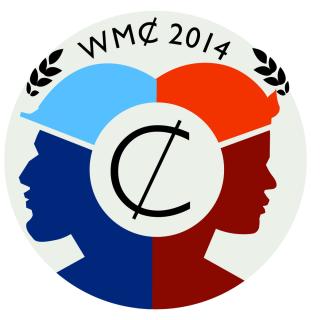
Leigh Claire La Berge on Why Capitalism Might Be A Joke
If you work at a so-called laptop job, there are moments every day when your work feels silly, pointless, absurd, even fake. What if you wrote an entire book that tried to inhabit and analyze that very feeling? Leigh Claire LaBerge’s new book—which is part memoir, part history, with a heavy dash of dark comedy and a sprinkling of Marx—attempts to do exactly that. Drawing on her time working inside of a corporate conglomerate, LaBerge alternatively revels in and eviscerates the inanity of day-to-day white collar life. Late capitalism, she shows, might just be one long joke. The question is: who’s the joke on? Workers? Consumers? The planet? Listen to this month’s episode to find out.
1 Okt 36min

Bench Ansfield on Arson-for-Profit, Insurance Brownlining, and the Bronx
Arson - which frequently involves the destruction of property - and business are not typically thought to be compatible. Indeed, there is a whole industry - the insurance industry - whose stated business is the mitigation of risk, including the risk of fire. Over the course of the late 1960s and early 1970s, however, fire insurance and fire prevention became untethered. This, combined with other developments, created the circumstances for arson to become profitable for some landlords. In this month's episode, guest Bench Ansfield details the local, national, and international circumstances that helped fuel the rise of arson-for-profit in U.S. cities. In doing so, they show how the Bronx and other urban areas like it served as crucial sites of late twentieth-century financialization via a ground-up history of finance told from the perspective of Bronx residents and community activists. Along the way, we discuss insurance brownlining, community-developed arson-fighting algorithms, and disco.
9 Sep 39min

Kendra Boyd on Black Business and Racial Capitalism during the Great Migration
Take a moment and picture the average person who came North during the Great Migration. Chances are good that you conjured someone who was African-American and working-class, bound for a city in search of a job, say, in a factory or in domestic service. But as Kendra Boyd’s new book, Freedom Enterprise, reveals, the Great Migration also saw entrepreneurs moving to the urban North in search of opportunity. Once they arrived in places like Detroit, these businesspeople had to navigate a fraught landscape that was profoundly structured by race and racism. Today's episode tackles everything from female entrepreneurs, to illegal hustling, racial uplift, and urban renewal. The boxer Joe Louis even makes an appearance. And we’ll grapple with a big and vexed question: Can you overcome racial capitalism by being a Black capitalist?
4 Aug 31min

Trish Kahle on Energy Citizenship and Coal-Fired Democracy in the 20th Century U.S.
What do energy consumers owe energy producers? What does it mean to be a citizen in a coal-fired democracy? In this month's episode, guest Trish Kahle reckons with the costs and benefits of coal from the perspective of American coal miners in Appalachia. Starting at the turn of the 20th century, Kahle outlines miners efforts to articulate and, later, revise a coal-fired social contract, one capable of delivering them the benefits of citizenship. Thus, Kahle shows how miners, throughout the 20th century, endeavored to leverage their position as energy producers to make claims on the U.S. government and American citizens, more broadly, related to a range of citizenship rights. These included the right to occupational safety, health, and housing, all of which were, at various points, threatened by coal companies and the U.S. government's failure to protect miners and their families from the devastation wrought by coal.
11 Juli 45min

Koji Hirata on Steel, Industrialization, and Chinese Socialism
This month's episode looks at the history of Chinese industrialization by focusing on Anshan Iron and Steel Works or Angang, located in Manchuria. Long portrayed as the quintessential model of Mao-era socialist industrialization, Angang, as Koji Hirata shows, was, in many ways, built on the material and ideological foundations laid by imperial Japan and nationalist China. Moving forward in time, Hirata analyzes Angang’s role in the making of socialist China, including revealing the relativley understudied political tensions that existed within China's largest state-owned enterprise (SOE) between factory directors, who answered to Beijing, and local party officials in Anshan; the political education of workers; and much more. The episode concludes by taking a long look at Anshan's shifting fortunes—and Manchuria, more broadly—amid a series of reforms during the late 20th century, and its transformation into a Chinese Rustbelt.
2 Maj 33min

LIVE! @ BHC 2025
It's now been over a decade since the New York Times declared that the history of capitalism was in full swing at American universities. This podcast also just celebrated its 10 year anniversary. With those milestones in mind, we wanted to take the temperature of the very folks driving the field forward into new and exciting directions. To do that, your co-hosts hit the road, interviewing attendees at the 2025 Business History Conference in Atlanta. Listen to find out what's on the mind of some of the leading historians in our field.
1 Apr 21min

Justene Hill Edwards on the Rise and Betrayal of the Freedman's Bank
In this month's episode Justene Hill Edwards leads listeners on a deep dive into the rise and fall of the Freedman's Savings and Trust Company, also known as the Freedman's Bank. Among the topics explored are the bank's relationship to the similarly named Freedman's Bureau, the ways the bank’s administrators worked to gain African Americans’ trust, and, notably, how these same administrators betrayed African Americans’ trust by squandering, and, at times, outright stealing their savings to fuel their own risky ventures with longterm consequences for the racial wealth gap and African Americans’ relationship with American capitalism.
5 Mars 41min





















